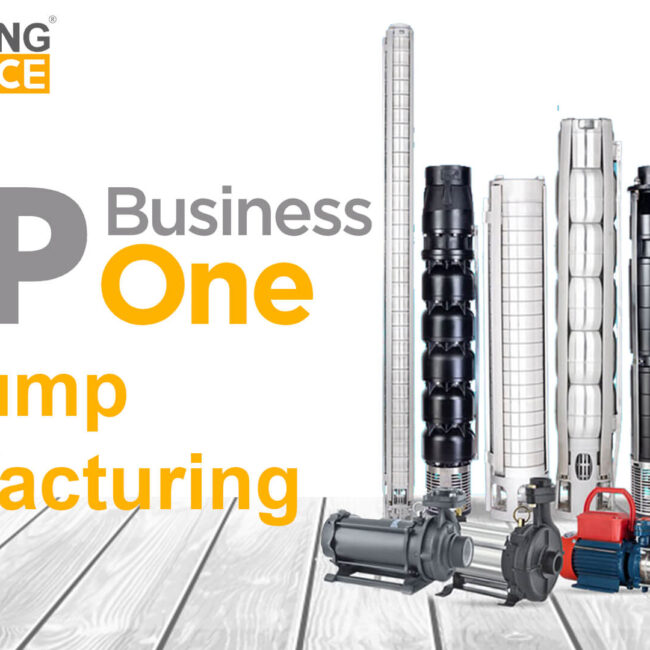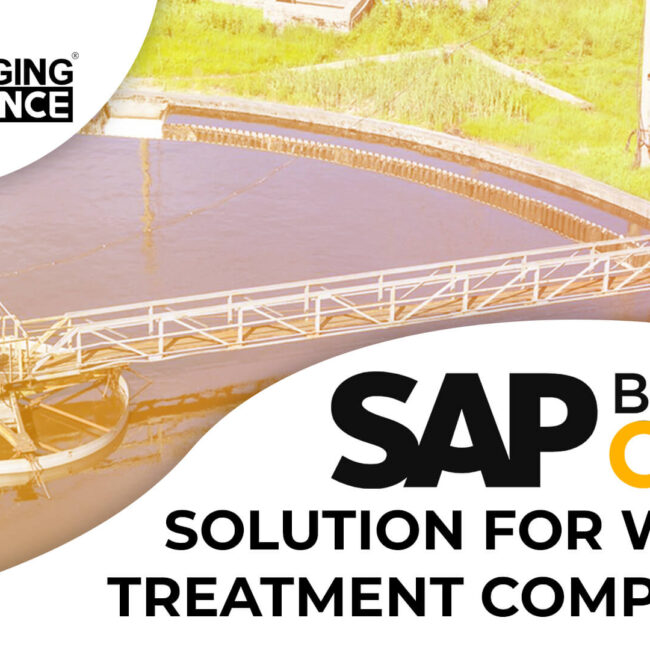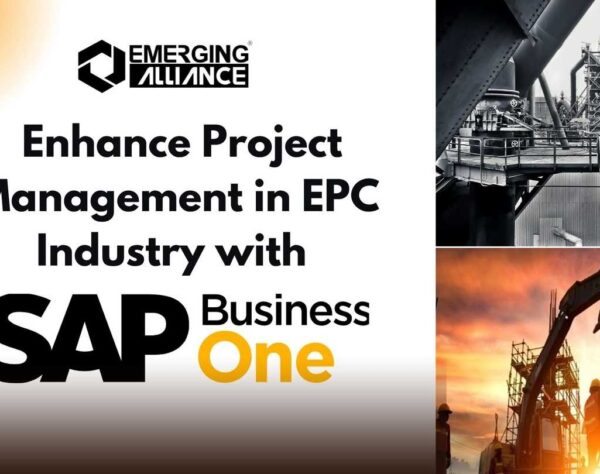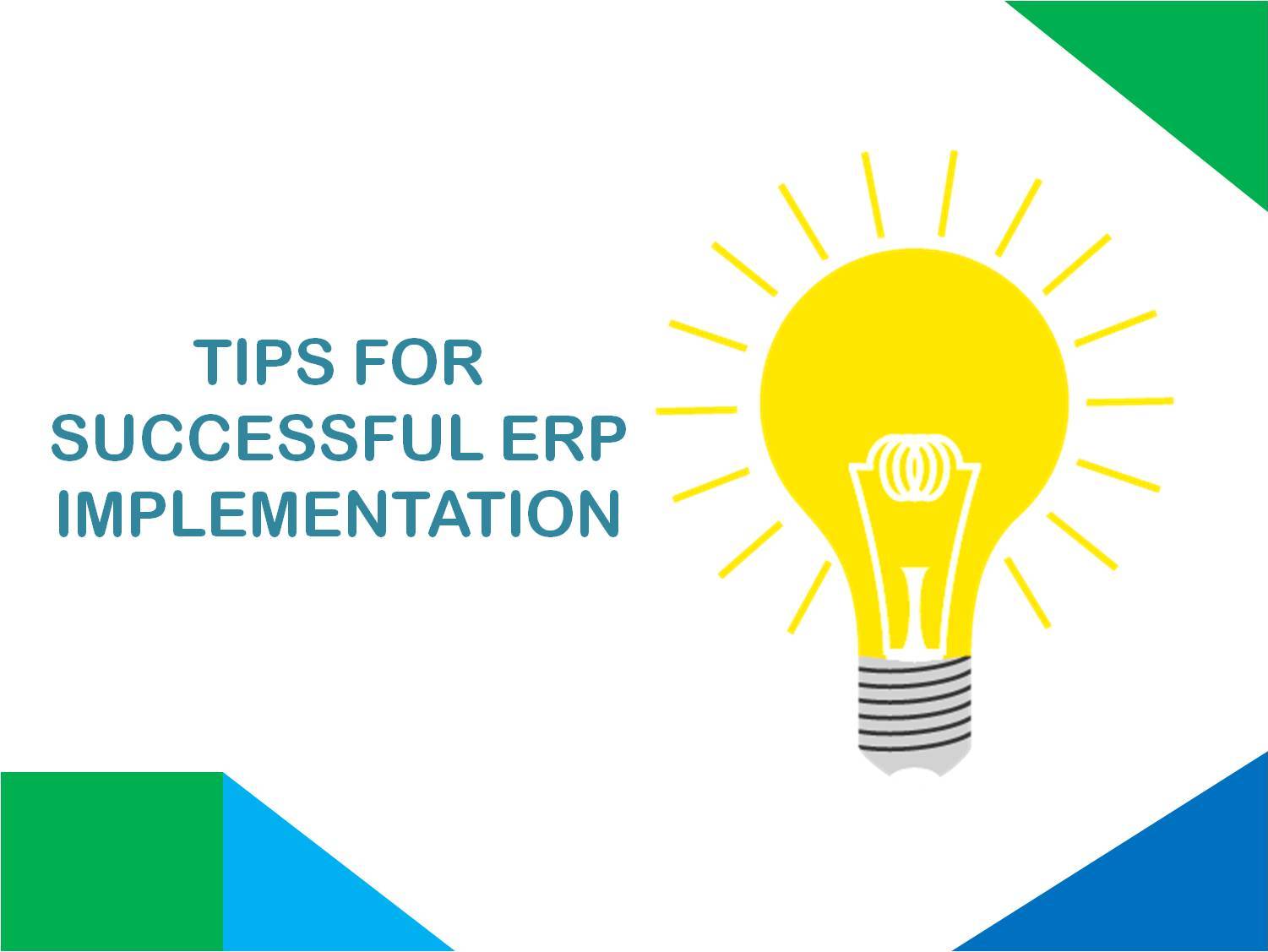
10 GUIDELINES FOR SUCCESSFUL ERP IMPLEMENTATION
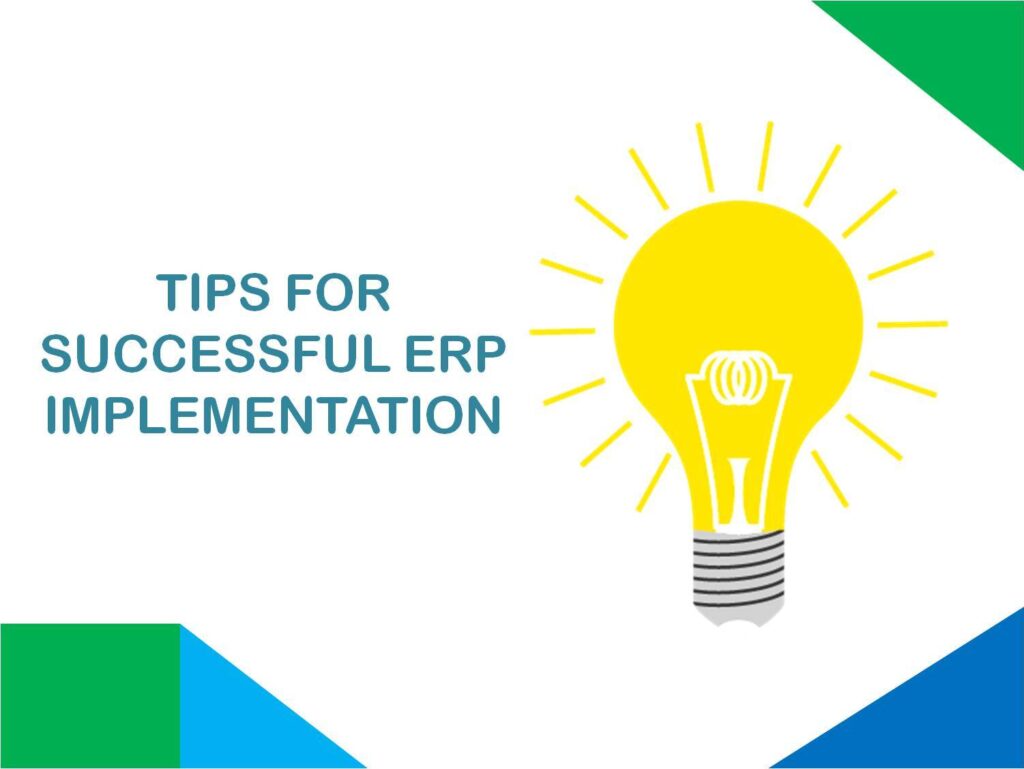
RECOMMENDATIONS FOR A SUCCESSFUL ERP IMPLEMENTATION:
1. DEFINE YOUR DESIRED RESULTS
One of the key risks that customers face in implementing ERP solutions is not being able to make an impact on the business bottom line. When you are purchasing a new ERP System you need to understand your business what you want to achieve, what your processes. What you necessarily do today but also where you want to go, what ultimately being we want to ultimately achieve.
2. DON’T AUTOMATICALLY REUSE OLD WORKFLOWS
Many people will buy an a new ERP system without understanding their business and what they’re effectively doing is spending an awful lot of money to replace a like-for-like system
3. MAP ALL YOUR BUSINESS PROCESSES
It boils down to creating a solid business case right in the beginning being very clear as to what are the bottlenecks in the processes what are the areas that are challenged today and which specific areas in business need to be impacted and this is really a blueprint that should be in place before you start thinking about the IT component of the ERP implementation they need to map the business processes they need to get the business stakeholders the end users into rooms to document what they do and as important question why they do things
4. ENSURE YOU HAVE A LONG TERM PLAN FOR YOUR SOLUTION
The best customers that we work with are the ones that think ahead and plan ahead and really sort of planning optimization stage where together we can partner on how to then drive their business forward after that initial goal life
5. MAKE SURE YOU HAVE EXECUTIVE LEVEL SPONSORSHIP
Constant involvement of senior excess during the project process helps to mitigate the risk of architecting processes within the overall solution that are counterintuitive to the company’s overall strategy
6. ASSEMBLE THE RIGHT PROJECT TEAM
One of the big problems that we often face on projects is that when we’re assemble in a project team when the customer is put in the project team together and they often put the people that are available the people that they can most easily spare and not the key people that the key decision makers in the organization that understand all the issues understand where their weaknesses are and also where their current strengths
7. TRY TO STANDARDIZE AND AVOID DEVELOPMENTS
The common reason why an ERP project might feel is too many developments and identified and approved by the customer we work very strong with our customers to try and minimize those developments and one of the techniques you can use is to ensure that you’ve got strong board sponsorship about the direction of the project and you’ve got good buy-in from the key users about adopting a new solution
8. MAKE USER TRAINING A PRIORITY
The key users about adopting a new solution training the core team and training the end users on the software you’re going to use is a necessity it is generally towards the end of a project and many businesses set a goal I’ve date and the part the gets crushed in the timescales is the training and the end user exposure to the system so the more investment that you can make time-wise in training ultimately leads to a better go life
9. FOCUS ON GETTING THE RIGHT DATA INTO THE SYSTEM
Training ultimately leads to a better go life key thing of data migration start early there are no magic bullets define the migration and separate project and choose the right people within the business to own the data test and test the game as positive user acceptance testing and good data management doesn’t stop after go live it’s an ongoing process which needs to be different
10. SELECT THE RIGHT SOLUTION AND PARTNER
Choosing the right solution and the right partner for the implementation is key often you see people choosing solutions based on costs or even the partner on cost as well and I think about how does that solution fit what your business needs and how does it fit the needs of your business for the future and how can you work with a partner that you’ve selected do they have the same mindset do they have the same approach and ultimately can you build long-term strategic relationships with them
AND FINALLY… The project does not end at go live it seems very strange to say that a go-live can lead to an ERP failure but ultimately it can do so you really need a perpetual go-live so you need to keep reviewing what you’re doing you need to keep reviewing your business processes you need to keep reviewing your requirements and ultimately if you don’t keep challenging and pushing forward you start to go backwards there is no real standing still with ERP systems and technology you have to keep adapting you have to keep challenging
Get started today.
Visit: www.emerging-alliance.com


